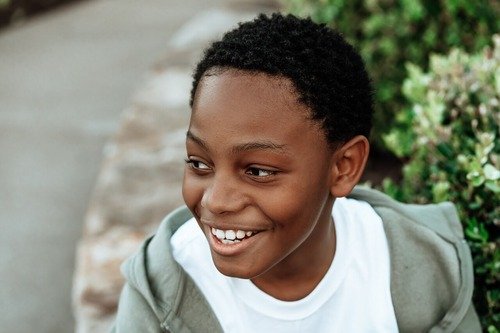Do Parents Have Favourites? An Honest, Gentle Conversation
“Do parents have favourites?” It’s one of those questions that can feel a bit… dangerous to say out loud. Like you’re revealing a secret that might hurt someone.
But the idea of parental favourites is far more common — and more complicated — than most people think.

First, let’s clear something up: “Favourite” isn’t the same as “more loved.”
A lot of parents panic when they notice they’re finding it easier to connect with one child at a particular stage of life. They worry this means they love their other children less.
But love is deep and constant. What changes is the ease of the relationship at any given moment.
One child might be in a delightful, cooperative stage where you laugh together easily. Another might be pushing boundaries hard right now — not because they’re “difficult,” but because they’re figuring out their independence.
It’s human to feel more relaxed with the child whose interactions leave you feeling calm rather than drained. That doesn’t mean your heart has a hierarchy. It means you’re human.
Why favourites can emerge (even if you don’t want them to)
We all bring our own history, personality, and preferences into parenting. These factors can subtly shape the way we connect with each child.
1. Personality compatibility
Sometimes, a child’s temperament is just a natural fit with yours. If you’re quiet and reflective, you might find it easier to connect with a thoughtful, mellow child than with one who’s a whirlwind of energy — even though you adore them both.
2. Shared interests
Maybe you and your eldest both love cooking, while your youngest would rather play football in the yard. Those shared moments in the kitchen can make you feel closer, simply because you’re spending more time doing something you both enjoy.
3. Birth order and roles
Firstborns often get more one-on-one time before siblings arrive. Youngest children may be seen as the “baby” of the family for years. Middle children sometimes become the peacekeepers. These dynamics can create different types of bonds.

4. Life circumstances
A child going through a challenging time — whether it’s a health issue, school struggles, or social difficulties — may get more of your emotional and physical energy. The extra attention isn’t necessarily “favouritism,” but siblings may see it that way.
5. The stage they’re in
Toddlers, teens, and young adults each come with their own joys and challenges. Sometimes the stage just suits your parenting style better — and you naturally lean toward the child who’s currently easier for you to relate to.
The effect on children — and what matters most
Here’s where the tricky part comes in. Even if your feelings shift over time and even if you love your kids equally, children are perceptive.
If one child consistently gets more praise, affection, or patience, siblings may notice. Over time, this can lead to:
- Sibling rivalry — kids compete for your attention in ways that might look like acting out or trying to “outdo” each other.
- Lower self-esteem — a child who feels less favoured might start doubting their worth.
- Strained sibling relationships — resentment can build between brothers and sisters.
But — and this is important — occasional fluctuations in closeness don’t automatically damage your children. It’s the pattern that matters.
If you’re aware of your own tendencies and make a conscious effort to connect with each child, you can keep those bonds strong.
How to keep “favourites” from becoming a problem
1. Notice your patterns
Take a quiet moment to ask yourself: Who do I naturally spend more time with? Who do I find easier to praise? Who gets more of my patience? Awareness is the first step to balance.
2. Create intentional one-on-one time
Even 15 minutes a day (or an hour a week) focused solely on one child can make a big difference. Let them choose the activity — whether it’s drawing, baking, or kicking a ball around.

3. Praise effort, not just outcomes
This ensures all kids feel recognized, even if they have different strengths. “I saw how hard you worked on that” can be just as powerful as “You’re so smart.”
4. Share interests across kids
If you love reading, invite all your kids into that world — even if you adapt the experience to suit their ages and personalities.
5. Repair when needed
If one child says, “You like [sibling] more than me,” resist the urge to deny it outright. Instead, listen, validate their feelings, and reassure them of your love. “I’m sorry you’ve felt that way. You’re just as important to me as your brother/sister, and I’m going to make sure you feel that.”
If you feel guilty about having a “favourite”
Guilt is a sign you care. The fact that you’re even thinking about this means you want to be fair, loving, and present for your children.
Remember: parenting is a living, shifting relationship. Some days you’ll feel more in sync with one child than another — and that’s okay.
Over a lifetime, these ebbs and flows usually even out. It’s important that every child knows that they are loved, valued and cherished.
A personal note for parents reading this
Parenting is not a perfect science. It’s messy, beautiful, exhausting, and heart-expanding all at once. There will be days that you will feel that you’re doing everything right and others you’ll wonder if you are doing it all wrong.

Most parents — even the ones who seem to have it all together — wrestle with feelings they don’t talk about publicly. That doesn’t make you a bad parent. It makes you human.
If you’ve noticed moments where you feel closer to one child, see it as a gentle nudge to check in with yourself, not as a moral failing.
Ask: What’s going on in my life, in their life, and between us that might explain this? Then take small, intentional steps to balance your attention.
Final Takeaway on Do Parents Have Favourites?
Yes — parents can have favourites, at least in the sense of feeling more connected to one child at certain times. But that’s not the same as loving one child more than another.
Your role isn’t to make your feelings perfectly identical every single day — it’s to ensure your actions show each child they are equally cherished, equally valued, and uniquely important in your heart.
As a parent, if you keep showing up with love, curiosity, and a willingness to repair when things go off balance, your kids will carry that sense of being loved with them for life.
And honestly? That’s all that really matters.
















